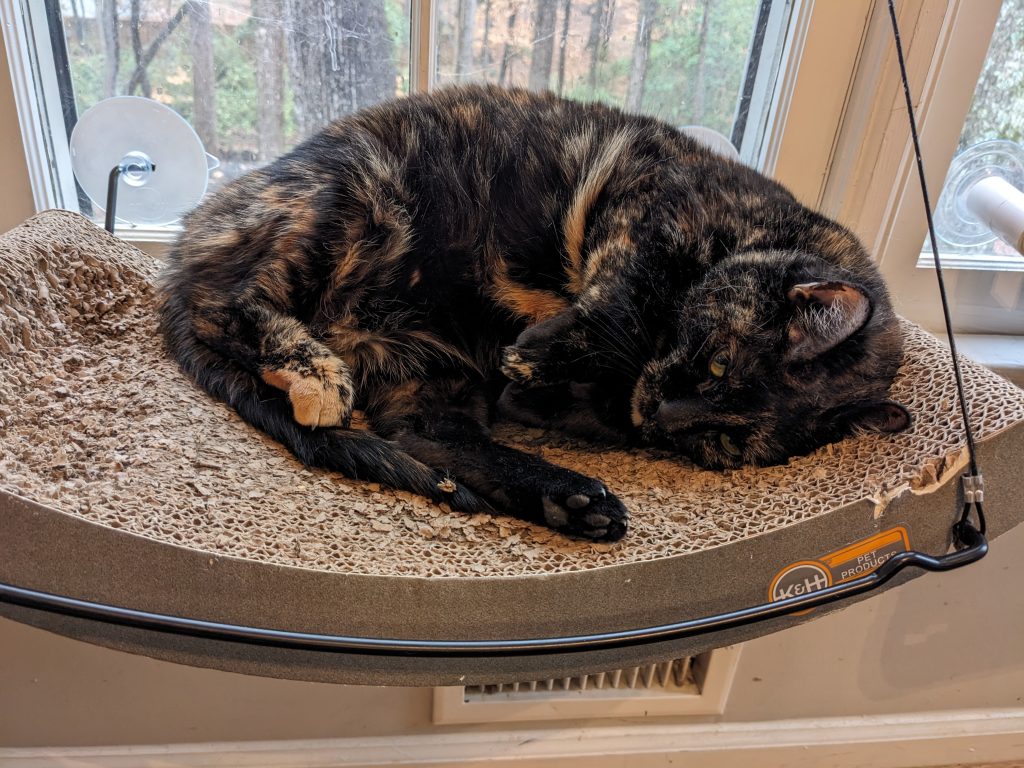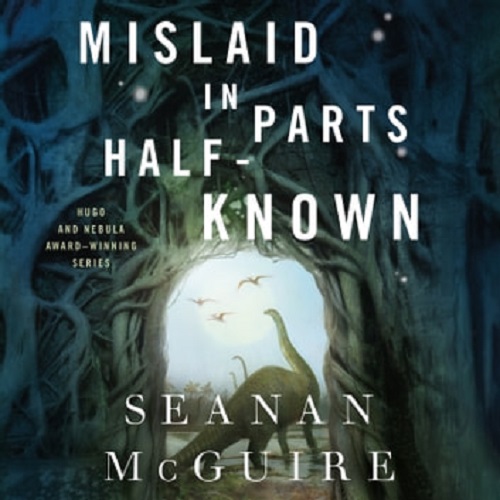 Mislaid in Parts Half-Known (Wayward Children, #9) by Seanan McGuire
Mislaid in Parts Half-Known (Wayward Children, #9) by Seanan McGuire Narrator: Jesse Vilinsky
Format: audiobook, eARC
Source: supplied by publisher via Edelweiss, supplied by publisher via NetGalley
Formats available: hardcover, ebook, audiobook
Genres: fantasy, portal fantasy, urban fantasy, young adult
Series: Wayward Children #9
Pages: 160
Length: 4 hours and 40 minutes
Published by Macmillan Audio, Tordotcom on January 9, 2024
Purchasing Info: Author's Website, Publisher's Website, Amazon, Barnes & Noble, Kobo, Bookshop.org, Better World Books
Goodreads
Dinosaurs and portals, and a girl who can find both in the latest book in the Hugo and Nebula Award-Winning series.
Antsy is the latest student to pass through the doors at Eleanor West's School for Wayward Children.
When her fellow students realize that Antsy's talent for finding absolutely anything may extend to doors, she's forced to flee in the company of a small group of friends, looking for a way back to the Shop Where the Lost Things Go to be sure that Vineta and Hudson are keeping their promise.
Along the way, temptations are dangled, decisions are reinforced, and a departure to a world populated by dinosaurs brings untold dangers and one or two other surprises!
A story that reminds us that finding what you want doesn't always mean finding what you need.
My Review:
This book and certainly the Wayward Children series as a whole, feels like the perfect story to start off the new year.
Why?
Because new years are all about doors closing, doors opening, and taking the opportunity to start with a fresh slate and reinvent yourself and how you see the world, and that’s a big part of what the Wayward Children series is all about.
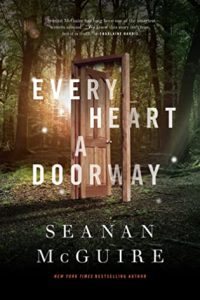 Beginning with Every Heart a Doorway, the series is a metaphor for finding the place where you belong, the place that your heart calls home, and then getting tossed out of that personal Eden and being forced to make a whole new start on a whole new you – whether you want to or not.
Beginning with Every Heart a Doorway, the series is a metaphor for finding the place where you belong, the place that your heart calls home, and then getting tossed out of that personal Eden and being forced to make a whole new start on a whole new you – whether you want to or not.
Especially when you don’t. And when you no longer belong in the place you originally came from. You really can’t go home again because it’s not the place you remember and the people who once loved you no longer see you as theirs.
The story in this particular entry in the series picks up where the previous book, Lost in the Moment and Found, left off. Antsy has returned to Earth from the Shop Where the Lost Things Go, nine-years-old in a sixteen-year-old body, still angry at the shopkeeper Vineta and terrified that someone will figure out her secret.
Which they do. Both of her secrets. Her friends figure out that she isn’t nearly as mature as her body appears to be. Her enemies figure out that Antsy left the shop with a talent for finding anything – including other people’s doors – and have absolutely no care in the world about what the doors cost and zero intention to pay for it themselves because that’s what other people are for.
But Antsy can find anything when she needs it badly enough. Including a way out when she and her friends are cornered by the magically mesmerizing head mean girl and her clique of magically reinforced sycophants.
Leading Antsy and company to break one of the School’s most sacred rules. They think they’re hunting for an escape route, but what they’re really searching for is the place that at least one of their hearts calls home. In other words, they’re going on a quest.
A quest to find the one place that Antsy literally can’t afford to return to. Unless she takes it over – for herself.
Escape Rating A: Before I get started on the book, I want to mention that I listened to this one in audio – and that feels like a bit of an afterthought, which is rare. The book was excellent, as you can tell from the rating. But this is a case where the fact I was listening to it instead of reading it didn’t impinge on my consciousness at all. The experience felt seamless, as though the narrator was downloading the story directly into my brain. Which was VERY much unlike Under the Smokestrewn Sky, where the narration detracted from the story.
I said at the top that this book was perfectly themed for the start of the year, because of its fundamental metaphor about doors opening and reinvention that just dovetails perfectly with the thoughts and feelings we all have about the old year ending and the new year beginning.
Ironically, however, this entry in the series is much more about closing doors than it is about opening them, although it definitely carries the theme of self-reflection and reinvention and finally being sure of who one needs to be in the world and their life in it.
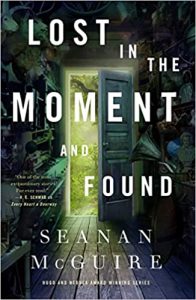 At first, the story feels very much a part of the YA genre which the series is often pigeonholed into, as out-of-place, out-of-time Antsy is being persecuted by a powerful clique of ‘mean girls’. It’s only when she starts revealing herself for who she really is and what she really can do that we start to see her as considerably more capable and mature than either her nine-year-old head or her sixteen-year-old body would be capable of.
At first, the story feels very much a part of the YA genre which the series is often pigeonholed into, as out-of-place, out-of-time Antsy is being persecuted by a powerful clique of ‘mean girls’. It’s only when she starts revealing herself for who she really is and what she really can do that we start to see her as considerably more capable and mature than either her nine-year-old head or her sixteen-year-old body would be capable of.
Because her moral compass is firmly pointed towards doing the right thing, and she’s very sure indeed what that right thing is – at least in the context of the Shop, its doors, its costs, and its purpose. It wants her back, and she wants to go, but it’s more than that. It’s that she’s ready to do the necessary for the shop and for herself. She’s grown up in the ways that matter, she just has to recognize that fact.
She has to ‘Be Sure’, and by the story’s end, she finally is.
But along Antsy’s journey we see other doors that open and close for other ‘wayward children’. Discovering that her best friend is happy and somewhat safe in the world her own heart calls home, even if it’s a world that none of the rest of the travelers would be remotely interested in staying, gives her strength and much-needed closure.
However, the series as a whole feels like it’s winding down, as it should. The young children in the first part of the series are now teenagers and their life paths are reaching out for them. One way or another, their doors are opening, giving them one last chance to be sure enough to go home.
What got me about this entry in the series was the way that the doors and the futures they represent felt like metaphors for life, for making or finding a life filled with magic and purpose. It doesn’t HAVE to be the magic of the doors – because happiness is a magic all its own. All one has to do is find it. And BE SURE.
I’m sure I’ll be back for the next book in this series, currently untitled but scheduled to be published this time next year.

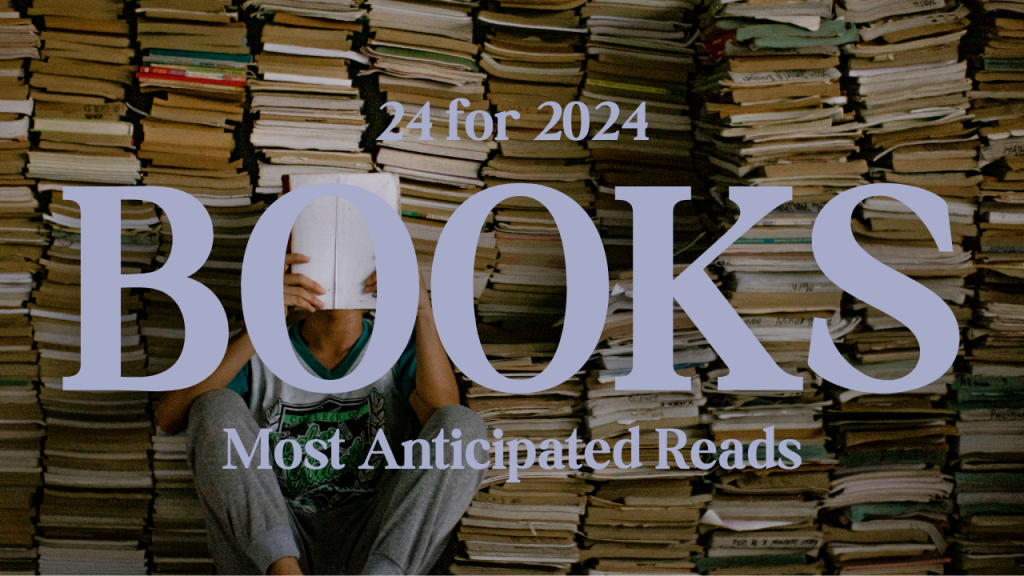

























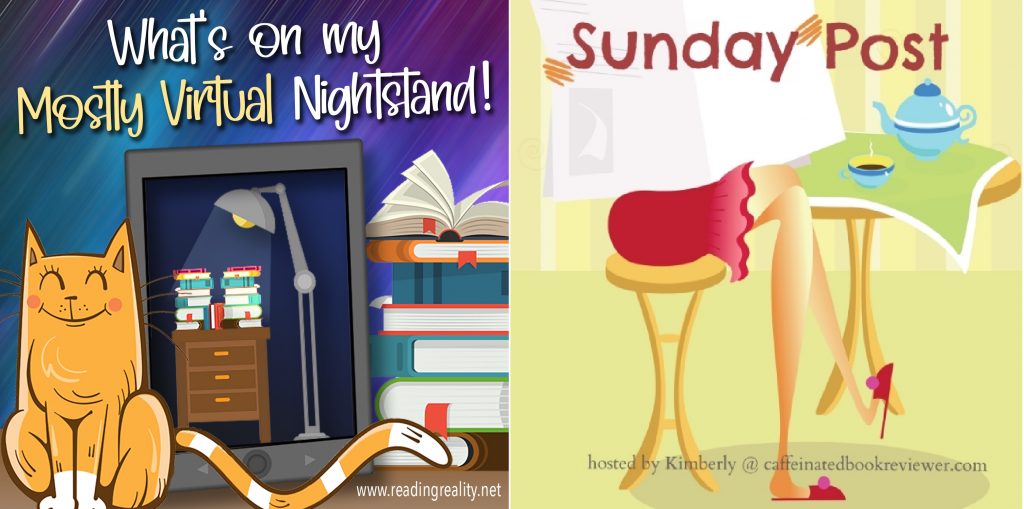
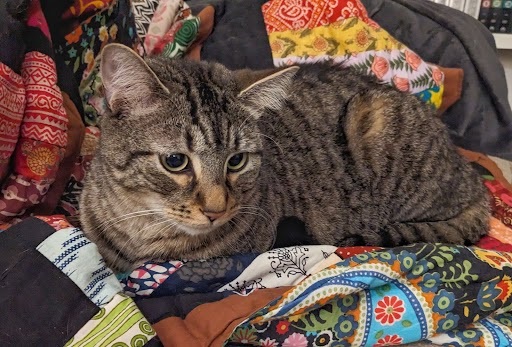
 Current Giveaways:
Current Giveaways: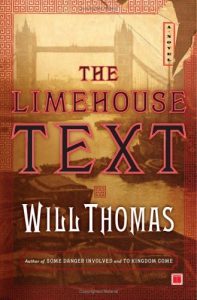 Blog Recap:
Blog Recap:









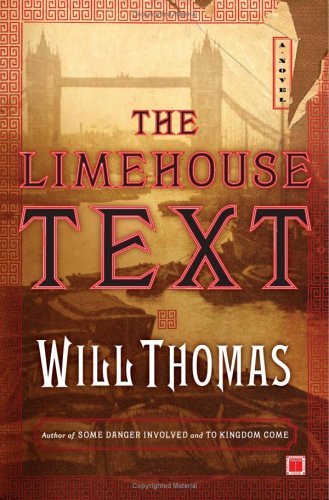 The Limehouse Text (Barker & Llewelyn, #3) by
The Limehouse Text (Barker & Llewelyn, #3) by 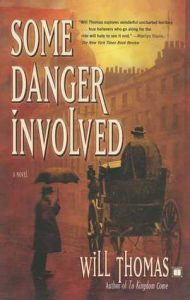 I was feeling in a bit of a murder-y mood this week – reading-wise at least. Which seems entirely fitting as we’re ‘killing’ 2023 this weekend and ringing in 2024.
I was feeling in a bit of a murder-y mood this week – reading-wise at least. Which seems entirely fitting as we’re ‘killing’ 2023 this weekend and ringing in 2024. 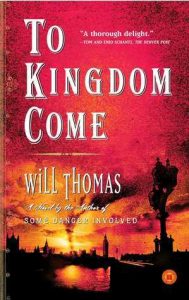 Escape Rating A+: One thing drove me utterly bananas during my reading of The Limehouse Text. I had the vague impression, not that I’d read this before, but that the Jeremy Brett Sherlock Holmes series had also tackled a story set in Limehouse – London’s Victorian version of Chinatown – but couldn’t track down precisely which story. I think it may have been
Escape Rating A+: One thing drove me utterly bananas during my reading of The Limehouse Text. I had the vague impression, not that I’d read this before, but that the Jeremy Brett Sherlock Holmes series had also tackled a story set in Limehouse – London’s Victorian version of Chinatown – but couldn’t track down precisely which story. I think it may have been 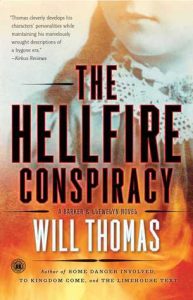 In the end, this is a clever, convoluted mystery, solved but not truly resolved by fascinating characters, steeped in a culture and a perspective that was not treated with any kind of respect in its time and about which stereotypes promoted during this period still linger. The reader is inexorably drawn in by the mystery and the setting, and left with both the satisfaction of at least some just desserts being served – as a mystery should – while still reeling from the marvelously presented microcosm of all the reasons why ‘colonialism’ is such a disgustingly dirty word in so many places around the globe to this very day.
In the end, this is a clever, convoluted mystery, solved but not truly resolved by fascinating characters, steeped in a culture and a perspective that was not treated with any kind of respect in its time and about which stereotypes promoted during this period still linger. The reader is inexorably drawn in by the mystery and the setting, and left with both the satisfaction of at least some just desserts being served – as a mystery should – while still reeling from the marvelously presented microcosm of all the reasons why ‘colonialism’ is such a disgustingly dirty word in so many places around the globe to this very day. Murder at the Serpentine Bridge (Wrexford & Sloane, #6) by
Murder at the Serpentine Bridge (Wrexford & Sloane, #6) by  As the previous book in this series,
As the previous book in this series, 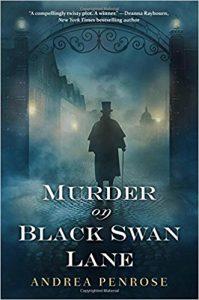 Escape Rating A: This was the right book at the right time, and I clearly waited enough time after
Escape Rating A: This was the right book at the right time, and I clearly waited enough time after  Meanwhile, everyone is chasing everyone else’s tails into danger, as the government’s intelligence services are unwilling to let the right hand know what the left hand is doing (shades of yesterday’s book) and everyone is unwittingly keeping vital clues from even their nearest and dearest.
Meanwhile, everyone is chasing everyone else’s tails into danger, as the government’s intelligence services are unwilling to let the right hand know what the left hand is doing (shades of yesterday’s book) and everyone is unwittingly keeping vital clues from even their nearest and dearest.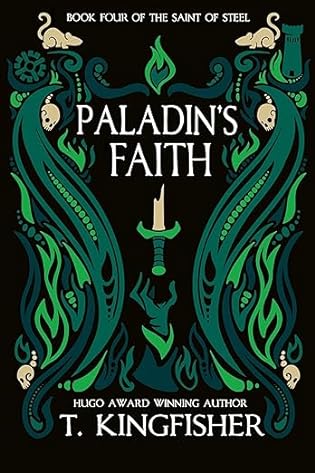 Paladin's Faith (The Saint of Steel, #4) by
Paladin's Faith (The Saint of Steel, #4) by 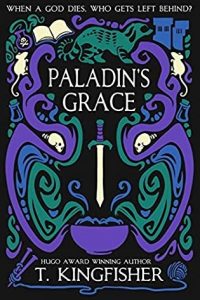 There’s a classic saying about large organizations at cross-purposes within themselves, that the right-hand doesn’t know what the left hand is doing. Marguerite Florian’s problem with the Red Sail mercantile empire is that their “right hand does not know who the left is killing”.
There’s a classic saying about large organizations at cross-purposes within themselves, that the right-hand doesn’t know what the left hand is doing. Marguerite Florian’s problem with the Red Sail mercantile empire is that their “right hand does not know who the left is killing”.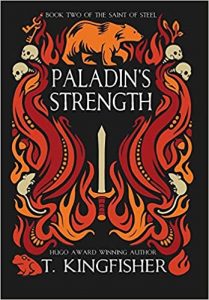 Marguerite just has to stay alive long enough to find the artificer. For that, she’ll need bodyguards who can’t be bribed or bought, seduced or suborned. She needs a paladin – or two.
Marguerite just has to stay alive long enough to find the artificer. For that, she’ll need bodyguards who can’t be bribed or bought, seduced or suborned. She needs a paladin – or two.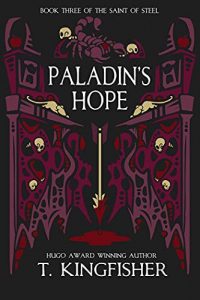 Howsomever, by the nature of that waiting game a LOT of this story is extremely interesting character development with a fair bit of adding to the depth of the worldbuilding but one does, like one of the side characters, Davith, want them to just ‘get on with it’ one way or another, either to get a move on in their mission or just make a move on each other.
Howsomever, by the nature of that waiting game a LOT of this story is extremely interesting character development with a fair bit of adding to the depth of the worldbuilding but one does, like one of the side characters, Davith, want them to just ‘get on with it’ one way or another, either to get a move on in their mission or just make a move on each other.












